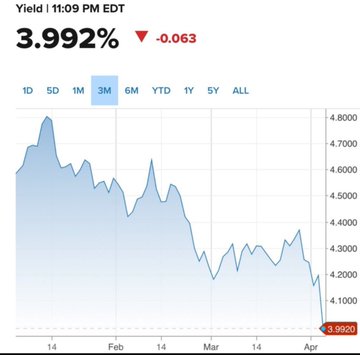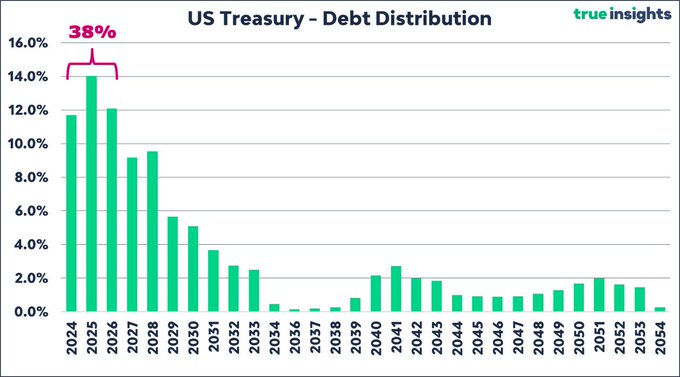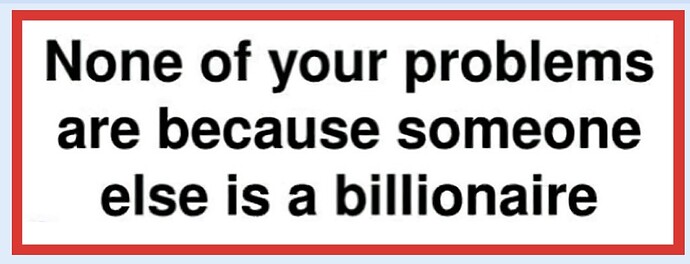I found this thread on X. Thought it was interesting
Karl Mehta
(https://x.com/karlmehta)
Treasury Secretary Scott Bessent’s new interview just went viral. He exposed the truth about He who cannot be named’s tariff plan: It’s not about a trade war…it’s about completely redistributing American wealth. Here’s what you missed about He who cannot be named’s $750B gamble (& what will happen next):
Bill Ackman and 4 others
First, here’s what just happened: After announcing aggressive tariffs last week, 75+ countries scrambled to call the White House. China retaliated - their tariffs immediately jumped to 125%. Everyone else? A 90-day pause with 10% baseline tariffs. And it was all calculated…
Bessent revealed the first layer: debt management. $9.5 trillion needs refinancing in 2025. Market volatility pushed investors toward Treasury bonds. Yields dropped below 4%, saving billions in interest. Tariffs aren’t just trade policy - they’re fiscal strategy.


[
Lower interest costs help, but won’t fix $36T in debt. The second part of the plan: slashing spending.
@elonmusk
&
@DOGE
cutting $4B daily - heading toward $1T in savings by September (if not sooner).
“He who cannot be named created maximum negotiating leverage.” Countries that didn’t retaliate got rewards. China kept escalating and faces 125% tariffs. The Art of the Deal playing out on global stage.
Who’s first in line to negotiate? Vietnam meeting today. Japan sending a deal team. South Korea, India at the front. “China’s neighbors” rushing to Washington’s table.
The most fascinating part of Bessent’s strategy? How it transforms global alliances. Vietnam, Japan, South Korea, and India are first in line for negotiations. Asian nations—China’s neighbors—are being pulled into America’s economic orbit.
The challenges are significant: • Short-term market volatility • Potential inflation as costs rise • Disruption to global supply chains • Retaliation from affected countries But Bessent sees beyond these concerns to the long-term structural realignment.
“For decades Republicans and Democrats have said unfair trade practices are ripping off the American people, but nobody has ever done anything.” If successful, this creates: • Manufacturing revival • Balanced global trade • Stronger national security • Lower borrowing costs
This $600B gamble is bold, disruptive, and risky. After decades of globalization that hollowed out American industry, the status quo wasn’t working for everyday Americans. The next 90 days will determine if this economic reset delivers the promised results.




